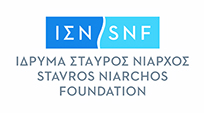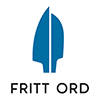
HAMBURG - For all the progress investigative journalism in Europe has made in the past decade, the amount of academic research on the topic has remained discomfortingly small. One of the first to turn the tide is Florentine Guia Baggi, who explored the matter and documented it in her thesis.
Since the beginning of the 21st century, investigative journalism in Europe has been undergoing a process of institutionalisation. The evolution has already meant a considerable leap forward for European research journalists and has resulted in the rapid emergence of centres and organisations for investigative journalism in different European countries and an increased production of transnational investigative stories. However, for all the progress made in the past decade, there is still little academic research on the topic. Guia Baggi’s thesis, submitted at the University of Hamburg, is one of the few exceptions. Entitled Non-profit Investigative Journalism in Europe: Motives, Organisations and Practices it explores the history and foundation of European non-profit organisations for investigative journalism.
In her thesis, Baggi looks into the state of investigative journalism in Europe by means of three centres for investigative journalism and compares it to the situation in the United States. She emphasises, however, that the study is merely explorative and that more research is needed and indeed desirable.
Outline and onset
The first chapters of the thesis situate investigative journalism as one of many journalistic paradigms, exploring its function in democratic societies, before laying out its history – first in the United States, then in the rest of the world, particularly in Europe. The main focus of the thesis lies on three non-profit centres for investigative journalism: the Romanian Centre for Investigative Journalism (RCIJ), the Bulgarian Investigative Journalism Centre (BIJC) and the Bureau of Investigative Journalism (TBIJ) in the United Kingdom. All three are discussed with regards to their historical context (from conception to activities today) and organisational structure. Afterwards they are compared – among each other and to similar organisations in the United States. Based on those results, finally, a comparison is made between the state of investigative journalism in Europe and the United States.
Baggi maps out the different European organisations focusing on investigative journalism and makes the surprising observation that there is a clear dichotomy between older, traditionally democratic countries on the one hand and countries with a much younger democratic tradition on the other. Centres for investigative journalism are emerging in various ex-communist countries in Eastern Europe, whereas no similar trend is visible in Central or Western Europe. She finds an explanation for the phenomenon in the fact that the years following the fall of the Berlin Wall witnessed “the emergence of a community of investigative journalists and the multiplication of topics to be investigated” simultaneously with the (financial) inability of Balkan media to cover “issues involving not only the shift from Communism to democracy but also war crimes [during the Yugoslav War]" (*) . Investigative journalism centres were thus founded in the Balkans as a way to provide alternative means with which to tackle serious issues. In Central and Western Europe, no such centres exist. The UK’s exceptional position (with its Bureau of Investigative Journalism) in this matter can be attributed to the country’s Anglo-American tradition of hardcore investigative journalism and its ties with the US.
Three centres, three models
Most of the data was collected through interviews Baggi conducted with the founders of all three centres and some of their members. Interestingly, all three centres were founded for different and often very specific reasons.
The RCIJ was formed in 2001 as a reaction to the censorship, widespread corruption and low professional standards in Romanian media. Its main aims have therefore always been, first of all, to provide journalists with a platform to speak freely, secondly, to function as a sort of resource centre for journalists and, thirdly, to build a strong and credible brand for its members. The RCIJ operates in a less structured way. Its members are thoroughly screened so as to avoid people with dubious interests. The founders are freelancers, thereby guaranteeing their independence; the other members, however, are not.
The BIJC was launched in 2008 with the very specific purpose of applying for funding under the Small Embassy Projects Programme of the Netherlands Embassy to be able to teach investigative journalism classes at Sofia University. Contrary to the situation in Romania, the Bulgarian media sector does not have to cope with corruption on a large scale. More urgent problems are training of aspiring investigative journalists, especially in local and regional media, and low wages for journalists. The BIJC is a purely virtual centre, with no infrastructure and no business model whatsoever. All of its members are full-time journalists employed elsewhere who only work for the BIJC on an ad hoc basis.
TBIJ is the most structured organisation of the three. It was founded in 2009 as sort of a spin off of the Centre for Investigative Journalism that has as its main tasks training and providing resources for investigative journalists. TBIJ, for its part, was founded with the sole purpose of producing investigative pieces, free from the market forces or ownership issues that plague mainstream media. All its members work for TBIJ as employees. It is funded by a donation of £2 million of the Potter Foundation with which it is to bridge the first five years of its existence before implementing a sustainable business model to finance itself, which will most likely be “a combination of finances from self-publication, finances from collaborations […] and finances from philanthropists”.
The importance of being transnational
The huge differences that exist between the three centres regarding historical context and organisational structure lead Baggi to conclude that there is no unique model for non-profit organisations for investigative journalism. This observation holds partially for the US as well, where the 60-plus centres differ quite considerably amongst each other too. However, at least they all have their legal status in common. The same cannot be said about their European counterparts.
The reality of a proliferation of different models exists a fortiori in the European context, seeing as how Europe is not one more or less homogeneous entity, but a collection of countries with widely varying traditions and identities. The importance of broader investigative stories, of cross-border, in-depth journalism will only increase in an ever more globalised world. And since traditional media are not always in the best position (financially or otherwise) to report on European stories that require serious investigative work, transnational centres for investigative journalism, such as the recently founded Baltic Center for Investigative Journalism Re:baltica, and transnational partnerships will play a role of unmistakable importance in the democratic framework of tomorrow’s Europe.
(*) Based on the manual Digging Deeper, published by BIRN, the Balkan Investigative Reporting Network
Written by Rafael Njotea









